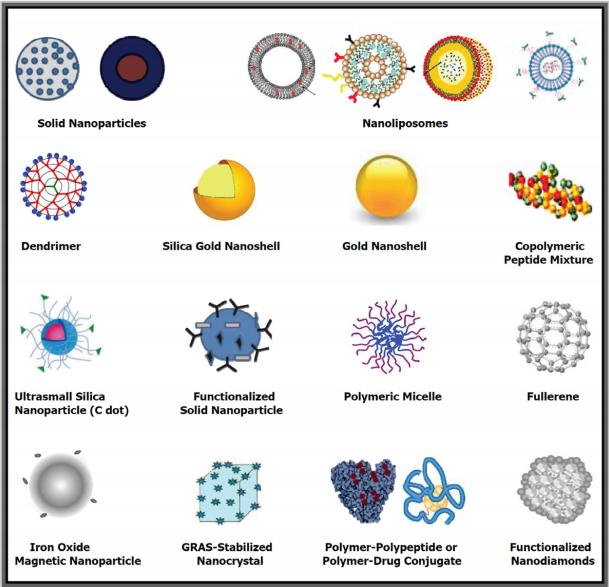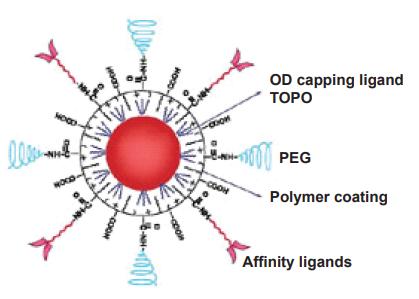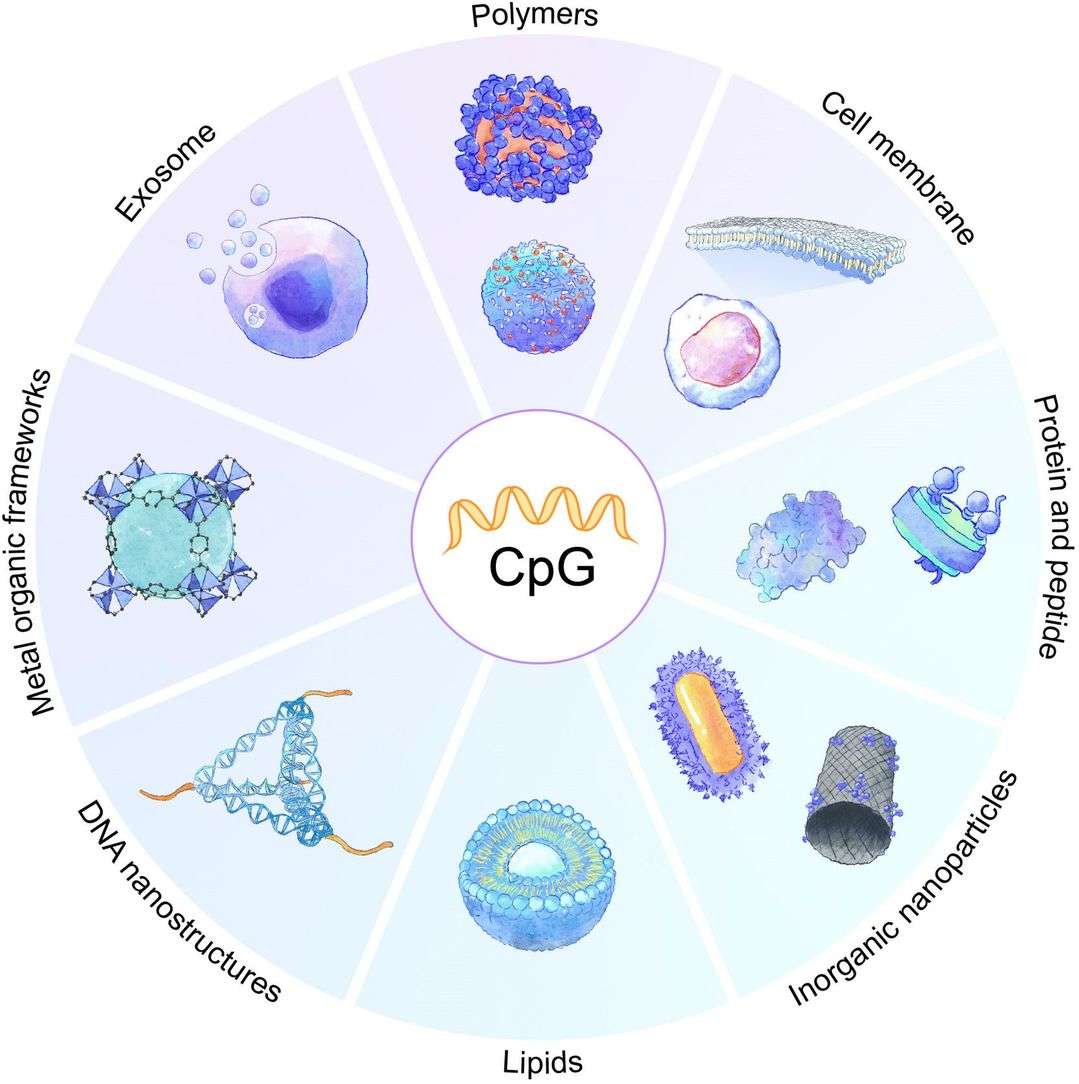Nanoparticle Technology for Nanoformulations
Inquiry
CD Formulation has the capability to develop nanoparticle delivery systems through the manipulation of nanoparticle size, surface characteristics, and material composition. These systems enable the targeted delivery of drugs to specific tissues and facilitate controlled release therapy. This approach not only minimizes drug-related adverse effects but also enhances patient adherence by allowing for lower drug doses. Consequently, nanoformulations leveraging nanoparticle technology are extensively employed in the management of various conditions such as cancer, AIDS, and other diseases, as well as in diagnostic applications, owing to their distinct benefits.
Nanoparticle Delivery System and Advantages of Nanoparticles
Nanoparticles used for drug delivery usually range in diameter from a few nanometers to one micrometer. Nano drug delivery platforms can be classified based on their platform composition, such as solid nanoparticles, nanoliposomes, dendrimers, silica gold nanoshells, gold nanoshells, copolymeric peptide mixture, polymeric micelles, iron oxide magnetic nanoparticles, etc. Active bio-targeting is usually achieved by labeling ligands (antibodies, peptides, aptamers, folic acid, hyaluronic acid) to the surface of nanoparticles through spacers or linkers (such as PEG). Nanoparticles such as carbon nanotubes and quantum dots are also used for drug delivery. Antibody-drug conjugates (ADCs) are included polymer-ploypeptide or polymer-drug conjugates.
 Fig.1 Schematic Illustrations of Nanoscale Drug Delivery System Platforms. (Raj Bawa. 2017)
Fig.1 Schematic Illustrations of Nanoscale Drug Delivery System Platforms. (Raj Bawa. 2017)
Nanoparticles have many potential advantages in nanodrug delivery.
- Nanoparticles have a large specific surface area, which enhances the water solubility of hydrophobic drugs, thereby improving bioavailability.
- Nanoparticles can protect biolabile drugs from the harsh biological environment of use, delivery, and release.
- Nanoparticles can prolong the residence time of drugs at specific sites of action or specific target tissues and/or prolong systemic circulation time.
- Nanoparticles can control drug release at specific desired delivery sites.
- Nanoparticle endocytosis-mediated drug transport across epithelial membranes.
- Targeted specific nanocarriers can perform receptor-mediated drug transport.
- Nanoparticle carriers can enhance drug accumulation at target sites, thereby reducing systemic toxicity.
- Nanoparticles are biocompatible and biodegradable.
- Nanoparticles have high drug-loading capacity.
- Nanoparticles can make nanodrugs have long-term physical and chemical stability.
- Nanoparticles can improve patient compliance.
Applications of Nanoparticle Technology
The applications of nanoparticle technology in the medical field include medical diagnosis, tissue engineering and cell therapy, disease treatment, drug delivery, etc.
Nanoparticles in Medical Imaging
Optical imaging: Quantum dots can be used for site-specific imaging in vivo, such as imaging of lymph nodes, pulmonary vessels, and tumors.
 Fig.2 Quantum dots (QDs) used in tumor imaging. (Shashi K Murthy. 2007)
Fig.2 Quantum dots (QDs) used in tumor imaging. (Shashi K Murthy. 2007)
Magnetic resonance imaging: Superparamagnetic iron oxide nanoparticles can be used for cancer detection, and their paramagnetic properties can alter the magnetic resonance relaxation time of selected regions or fluids in the body, enhancing contrast to image the liver, lymph nodes and bone marrow.
Nanoparticles in Drug and Gene Delivery
Cancer Therapy: Polymeric- and liposome-based nanoparticles enable targeted delivery through surface functionalization for cancer therapy.
Neurodegenerative diseases: Polymeric- and liposome-based nanoparticles can cross the blood-brain barrier (e.g., by PEG incorporation) to treat diseases that are unresponsive to small-molecule drugs (gene therapy).
HIV/AIDS: Polymeric- and liposome-based nanoparticles can solubilize water-insoluble drugs through emulsification and are capable of transfecting cells by incorporating DNA into nanoparticles.
Ocular diseases: Polymeric- and liposome-based nanoparticles can prolong the residence time of drugs in the ocular mucus layer or retina.
Respiratory diseases: Polymeric- and liposome-based nanoparticles can reduce airway inflammation.
Nanoparticle Technology Platforms at CD Formulation
After years of research and practice, CD Formulation has constructed multiple nanoparticle drug delivery platforms, such as polymeric nanoparticle technology platform, inorganic nanoparticle technology platform, viral nanoparticle technology platform, lipid nanoparticle technology platform and nanoparticle albumin binding technology platform, etc.
Polymeric Nanoparticle Technology Platform
Polymeric nanoparticles are synthetic polymers with sizes ranging from 10-100 nm. Common synthetic polymeric nanoparticles include polyacrylamide, polyacrylate, and chitosan. Drug molecules can be added during or after polymerization. Depending on the polymerization chemistry, the drug can be covalently bound, encapsulated in a hydrophobic core, or electrostatically bound. Our strategies for synthesizing polymeric nanoparticles include microfluidics, electrodropletization, high-pressure homogenization emulsion-based interfacial polymerization, etc.
Dendrimer Technology Platform
Dendrimers are unique hyperbranched synthetic polymers with monodisperse sizes, well-defined structures, and highly functionalized terminal surfaces. They are typically composed of synthetic or natural amino acids, nucleic acids, and carbohydrates. Therapeutic drugs can be relatively easily loaded into the interior of dendrimers or onto the terminal surfaces of branches through electrostatic interactions, hydrophobic interactions, hydrogen bonds, chemical bonds, or covalent binding. Drug-dendrimer binding can extend the half-life of drugs. We can offer dendrimer development services with our innovative dendrimer technology to meet customers' different needs.
Inorganic Nanoparticle Technology Platform
Inorganic nanoparticles are very valuable functional nanomaterials in drug delivery systems due to their well-defined and highly tunable properties such as size, shape and surface functionalization, and have been widely used in biological and medical applications ranging from imaging and diagnostics to drug delivery. Inorganic nanoparticles are generally composed of inert metals such as gold and titanium, which are ultimately formed into nanospheres. With the support of an inorganic nanoparticle technology platform, we can provide specific inorganic nanoparticle development for nanomedicines.
Viral Nanoparticle Technology Platform
Viruses can be used to deliver genes for genetic engineering or gene therapy. Commonly used viruses include adenoviruses, retroviruses, and various bacteriophages. The surface of viral particles can also be modified with ligands to improve targeting capabilities. In addition to using viruses, drug molecules can also be encapsulated in protein particles or virus-like particles (VLPs) derived from viral capsids. VLPs also have surfaces that can be easily modified, allowing for targeted delivery. At this platform, we have been committed to exploring and researching viral nanoparticle development and clinical transformation for years, and we can offer different viral nanoparticle customization services for biotech products.
Nanoparticle Albumin Binding Technology Platform
This technology uses protein albumin as a carrier of hydrophobic chemotherapy drugs through non-covalent binding. Albumin itself is a natural carrier of hydrophobic particles and can transport molecules bound to itself. Albumin nanoparticles have achieved fruitful results in clinical research on the treatment of various diseases. Based on this technology platform, we have conducted in-depth research on albumin nanoparticles and can provide customers with different customized albumin nanoparticle services.
In addition to the above-mentioned special nanoparticle technology platforms, we can also provide you with other additional nanoparticle technology platforms for nanomedicine that you require, including magnetic nanoparticle technology platform, mesoporous silica magnetic nanoparticle technology platform, organic nanoparticle technology platform, etc.
Highlights of Our Nanoparticle Technology Platform
- We have built multiple nanoparticle technology platforms for nanoformulations to customize a variety of nanoparticles that meet customers' requirements.
- We have a strong and professional core team, and they have rich experience in preparing and characterizing multiple nanoparticles and can provide customers with nanoparticle technology services for nanoformulations.
- We also are exploring and developing more and more advanced nanoparticle technology platforms to aid global researchers in nanoformulation development and commercial manufacturing.
Custom Nanoparticle Development Services
Our nanoparticle technology platform enables us to provide customized nanoparticle development services, such as dendrimer nanoparticles, inorganic nanoparticles, viral nanoparticles, etc., to meet the specific needs of our customers. With our in-depth understanding and research on the unique properties of nanoparticles and their specific applications, we are committed to providing customized solutions for nanoparticles to improve the bioavailability and stability of various pharmaceutical and biotechnology products.
Nanoparticle Development for Nanomedicine
CD Formulation has been a leader in nanoparticle formulation development for many years. Leveraging our advanced nanoparticle technology, we offer custom formulation services. Our team's extensive research on various nanoparticle platforms enables us to create particles for diverse applications, accelerating their clinical and commercial progress.
Albumin Nanoparticle Development for Nanomedicine
CD Formulation, a leading provider of formulation development services, uses cutting-edge technology to offer clients customized albumin nanoparticle formulations. Our expert team designs and produces high-quality, tailored albumin nanoparticles to support research and advance nanomedicine commercialization.
Biomimetic Nanoparticle Development for Nanomedicine
Biomimetic nanoparticles mimic natural cells' characteristics and functions, using biomaterials on their surfaces. CD Formulation employs advanced technology to develop these nanoparticles, providing customized formulations for various applications, including protein-based, cell membrane-coated, and ligand nanoparticles.
Polymeric Nanoparticle Development for Nanomedicine
Polymeric nanoparticles are colloidal carriers made from biodegradable polymers through emulsification. They are used in drug delivery to control the release and target poorly soluble drugs, reducing toxicity and side effects. CD Formulation offers custom formulation services for these nanoparticles, including nanocapsules and nanospheres.
Solid Lipid Nanoparticle Development for Nanomedicine
CD Formulation offers formulation development services for solid lipid nanoparticles (SLNs) in nanomedicine, utilizing our advanced fabrication technology to meet various requirements. Our highly qualified team specializes in designing and configuring SLNs to accommodate different payloads, thereby facilitating both research and the commercialization of SLNs in nanomedicine.
Lipid Nanoparticle Development for Nanomedicine
CD Formulation provides advanced lipid nanoparticle manufacturing technology to develop custom LNP formulations, including liposomes, solid lipid nanoparticles (SLNs), Nanostructured lipid carriers (NLCs), and lipid-polymer hybrid nanoparticles, tailored to specific client needs.
Published Data
Technology: Nanoparticle platforms for CpG oligonucleotide delivery
Journal: Biomaterials Science
IF: 6.6
Published: 2024
Results:
The authors summarized nanoparticle-based CpG delivery systems developed to improve the efficacy of CpG-mediated immune responses, including DNA nanostructures, inorganic nanoparticles, polymeric nanoparticles, metal nanoparticles, organic frameworks, lipid-based Nanosystems, proteins and peptides, as well as exosomes and cell membrane nanoparticles. Additionally, the authors discuss future challenges in establishing CpG delivery systems for immunotherapeutic applications. This nanoparticle platform is of great significance from basic research to clinical application research of nanoformulation for cancer immunotherapy, viral infection, allergic diseases, and asthma.
 Fig.3 Emerging nanoparticle platforms for CpG oligonucleotide delivery. (Mingqiang Li, et al. 2024)
Fig.3 Emerging nanoparticle platforms for CpG oligonucleotide delivery. (Mingqiang Li, et al. 2024)
CD Formulation as a world-class nanoformulation development and manufacturing service company, is committed to exploring and constructing innovative nanoparticle technology platforms for nanoformulations. We can provide customers with the fabrication and characterization of a variety of nanoparticles. If you have any requirements for nanoparticle technology service, please do not hesitate to contact us.
References
- Raj Bawa. Chapter 6: What's in a Name? Defining "Nano" in the Context of Drug Delivery. Handbook of Clinical Nanomedicine: Nanoparticles, Imaging, Therapy, and Clinical Applications. 2017,127-168.
- Shashi K Murthy. Nanoparticles in modern medicine: State of the art and future challenges. International Journal of Nanomedicine. 2007,2(2): 129-141.
- Mingqiang Li, Haochen Yao, Ke Yi, et al. Emerging nanoparticle platforms for CpG oligonucleotide delivery. Biomaterials Science. 2024,12(9): 2203-2228.
How It Works
STEP 2
We'll email you to provide your quote and confirm order details if applicable.
STEP 3
Execute the project with real-time communication, and deliver the final report promptly.
Related Services


 Fig.1 Schematic Illustrations of Nanoscale Drug Delivery System Platforms. (Raj Bawa. 2017)
Fig.1 Schematic Illustrations of Nanoscale Drug Delivery System Platforms. (Raj Bawa. 2017) Fig.2 Quantum dots (QDs) used in tumor imaging. (Shashi K Murthy. 2007)
Fig.2 Quantum dots (QDs) used in tumor imaging. (Shashi K Murthy. 2007) Fig.3 Emerging nanoparticle platforms for CpG oligonucleotide delivery. (Mingqiang Li, et al. 2024)
Fig.3 Emerging nanoparticle platforms for CpG oligonucleotide delivery. (Mingqiang Li, et al. 2024)
